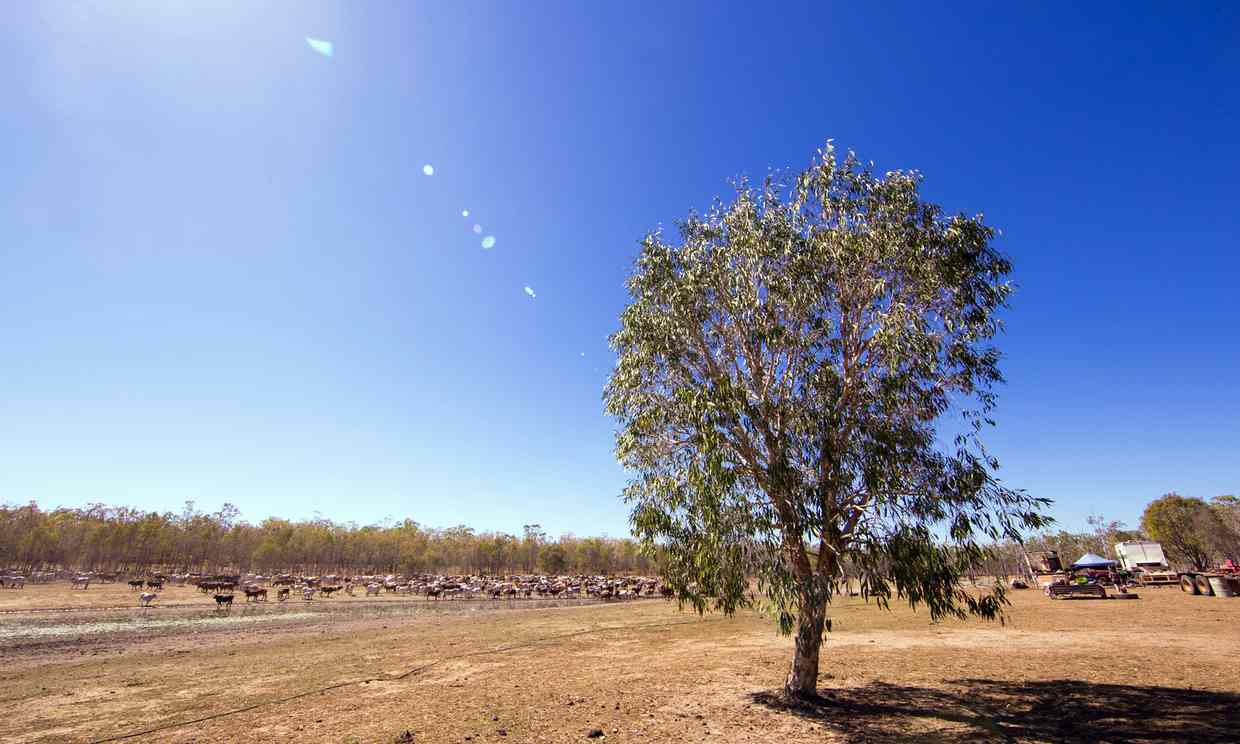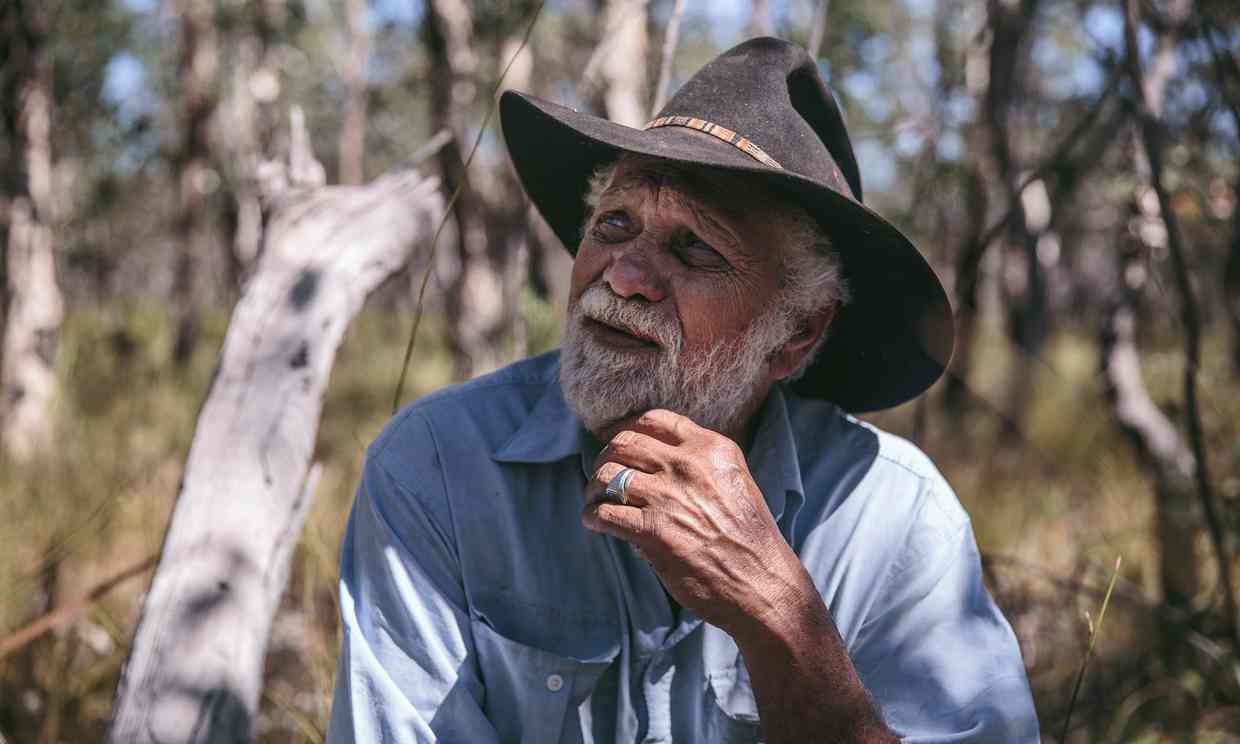Indigenous community lets tourists in on newly won Australian homeland
Brigid Delaney, The Guardian,
18 Aprile 2016.
 |
An Indigenous group who won a huge
land title claim is partnering with a commercial tourism operator to
bring visitors to its region – a remote and seldom visited part of
Australia.
Intrepid Travel, a global company
known for taking tourists on adventures through Asia, South America
and Africa, will begin to take small groups on to Olkola land in Cape
York after forming a joint venture with the traditional owners.
In December 2014 the
Olkola clan won a 30-year battle to gain use rights over more
than 6,300 sq km of former cattle grazing land in far north
Queensland.
But when the question of employment
and livelihood arose, the clan decided not to mine the land, which is
rich in uranium and other minerals.
A French company, Areva, had taken a
licence over 1000 sq km to explore for uranium but a deal negotiated
by the Olkola forced Areva to give it up.
Instead, the only exploration will be
done by foot and four-wheel drive as the Olkola people get ready to
welcome the first group of tourists when the dry season starts in
June.
With Indigenous guides, groups of up
to 12 visitors, paying $2,845, will explore and camp in the region –
known for its biodiversity and the largest unbroken tropical savanna
in the world.
“When we got the land back on 10
December, we got all this country. What are we going to do with it?
What do you do with it when you’ve got it? That’s been on my mind
all the time,” Mike Ross, the chairman of the Olkola Aboriginal
Corporation, told Guardian Australia.
Ross, and many group members who
maintained their connection to the land, had been working with cattle
since the group was dispossessed of its traditional way of life about
a century ago. Others dispersed.
“They got shifted out,” Ross said.
“People were scattered – Sydney, Palm Island, all the big
missions. We are still looking for their descendants. It’s really
hard finding the people and bringing them back.”
Those left working with the cattle
earned subsistence wages but were able to keep their link to the
land.
“They talk the language,” Ross said. “I’m just picking
it up myself now. But our language is still there. We have a
dictionary.” After a slump in the cattle industry,
the Olkola people who were left in the region moved to town.
 |
| Mike Ross |
There was a work program in Cooktown
but, Ross said, “all you were doing was mowing lawns and picking up
sticks”.
He said opening up their traditional
lands to tourism was appealing “because me and the visitors, we’re
learning together”. “I’m still learning about my country,” he
said.
“It still looks the same from years and years ago. The stones
are all intact – left here from the old people. I’d like to show
that off and tell stories.”
Many people returning to the land are
clamouring to work on the Intrepid tours – as cooks, guides and
rangers.
Intrepid became involved after the
Australian Conservation Foundation got in touch and said the Olkola
people were interested in running a tourism business on their land
rather than mining it.
“The ACF has been working with
Olkola for a few years, helping them with their land title claim,”
Intrepid Travel co-founder, Geoff Manchester, said. “We are
interested in helping an Aboriginal community get into tourism, so we
worked assisting them in creating a sustainable business.”
There are many
types of Indigenous tourism initiatives running in Australia but
most involve day trips or tours to specific sites, such as rock art
areas, rather than hosting groups on homelands, where permits are
required for visitors.
The Yolngu people in Arnhem Land run
cultural tours on homelands – including a week-long weaving
workshop – but such initiatives are the exception rather than the
rule.
A proposal was discussed in 2014 to
open more of Arnhem Land to tourists.
More
than 20 Yolngu homelands had signaled interest in cultural
tourism in the region as a means of achieving economic independence
and staying on country.
However, the projects are unlikely to go
ahead this year.
For the Olkola people, the tourism
joint venture with Intrepid was a “big challenge”, Ross said. The
land mass was so huge, he said, “you could fit Sydney in it twice”.
Ross is 64 but ready for a new career. “I’m just starting,” he said. For Manchester, the project is
“ground-breaking”.
“We work with them from scratch, including
what the product should be that we will be able to sell – so things
that exist on their land that travellers will be interested in,” he
said. Manchester said Intrepid was also
helping the Olkola with “infrastructure, some properties and
housing – doing improvements to housing and also training their own
people to lead the groups”. “We don’t want a middle man running
it,” he said. Cultural factors will also be taken
into account when bringing tourists on to the land.
“We are working
through ways of going around things like funerals, so that there will
always be people who are available for tours during the season,”
Manchester said.
He said there was a big demand across
the world for Indigenous travel experiences.


